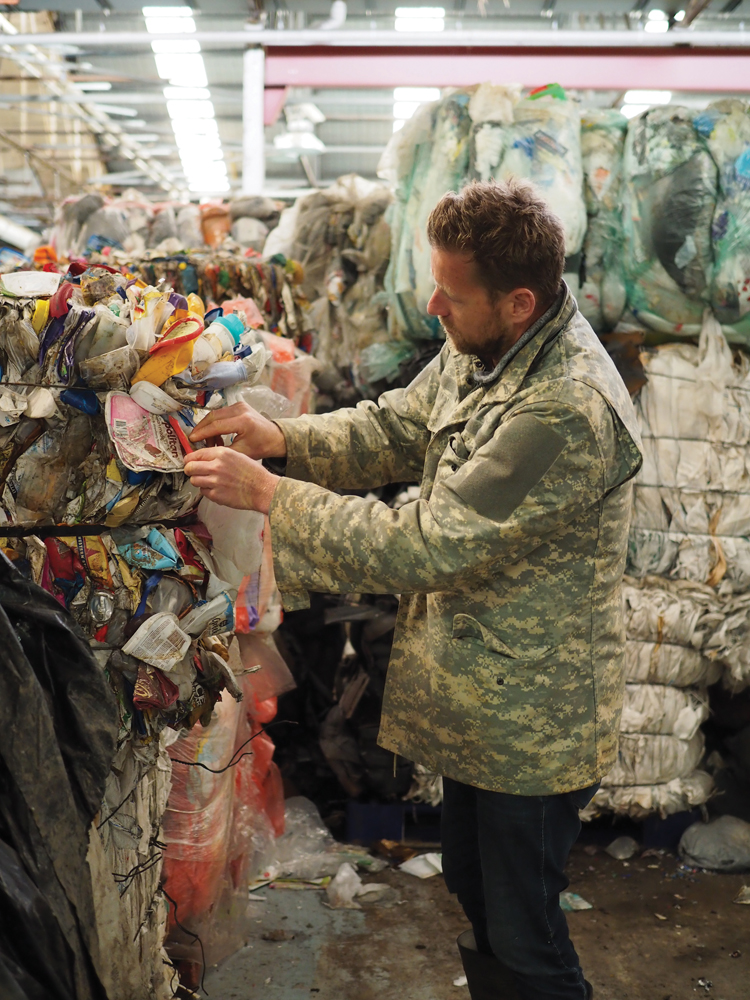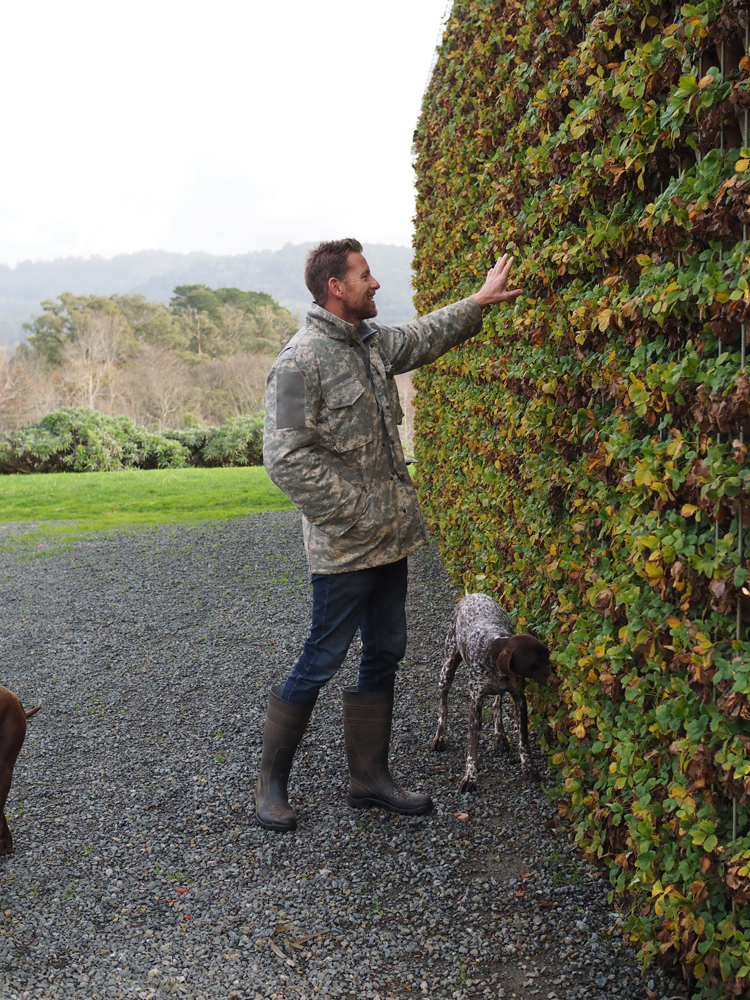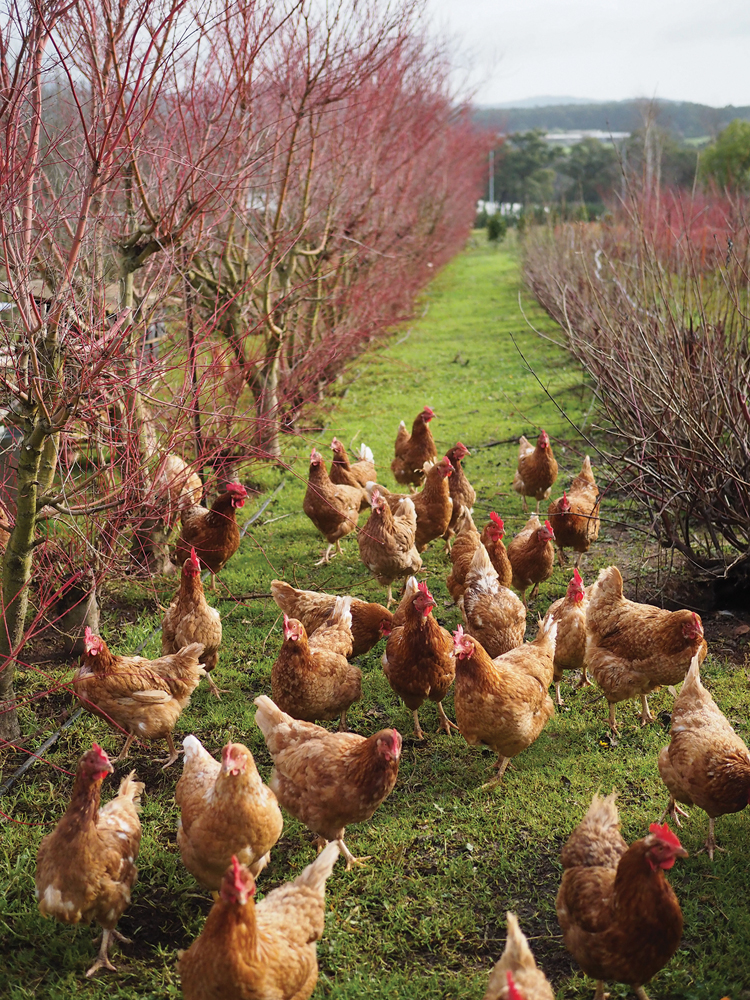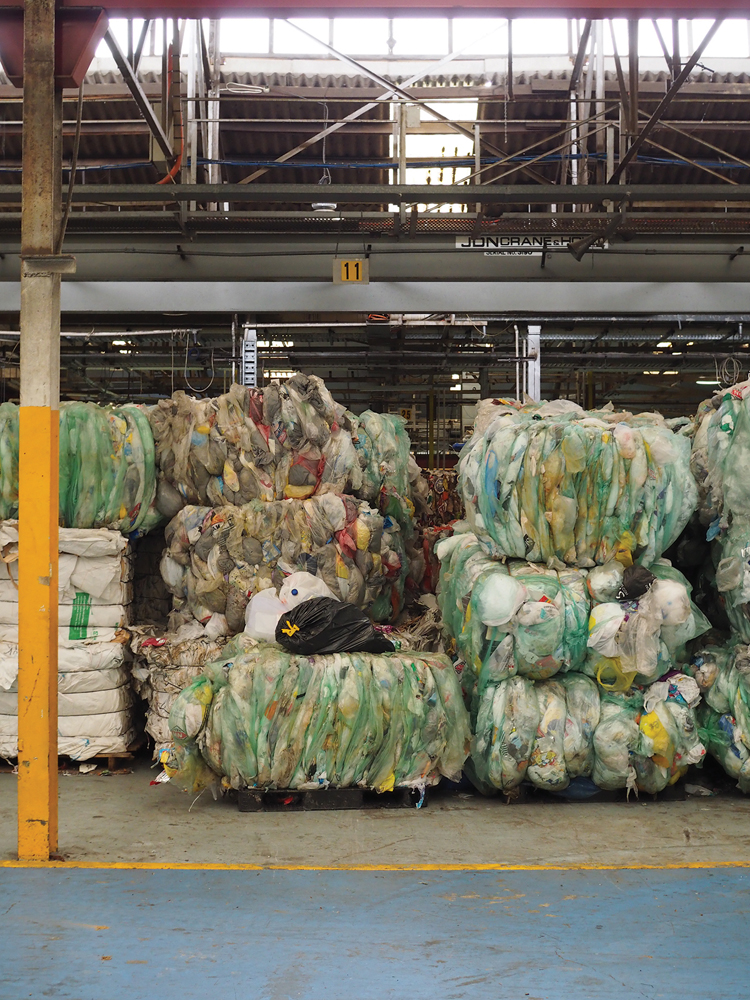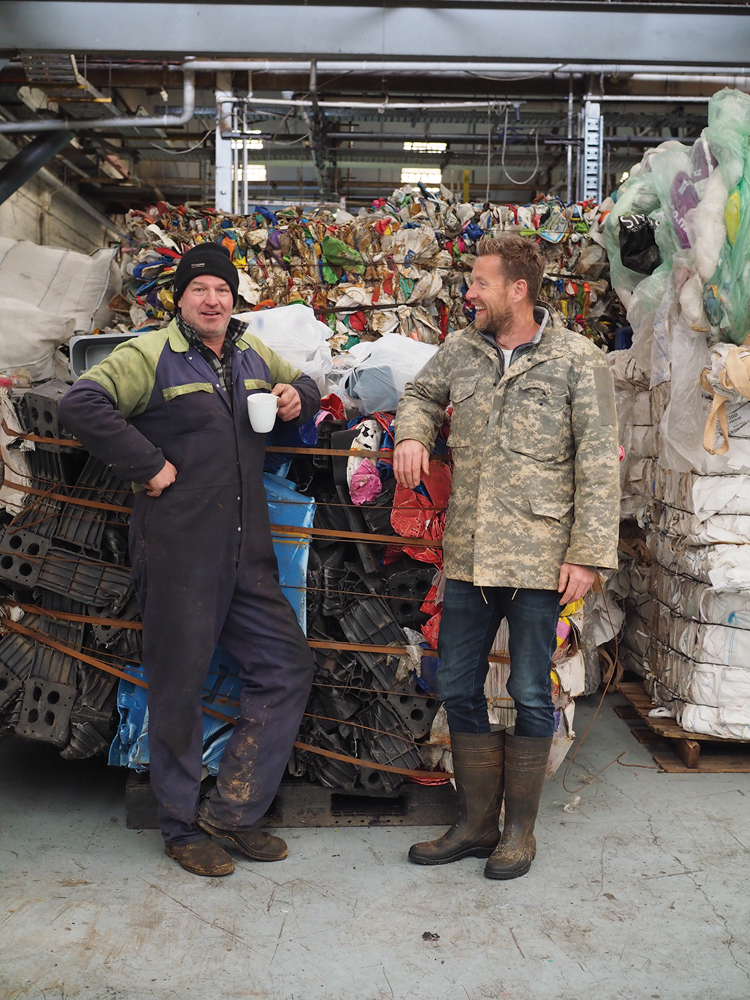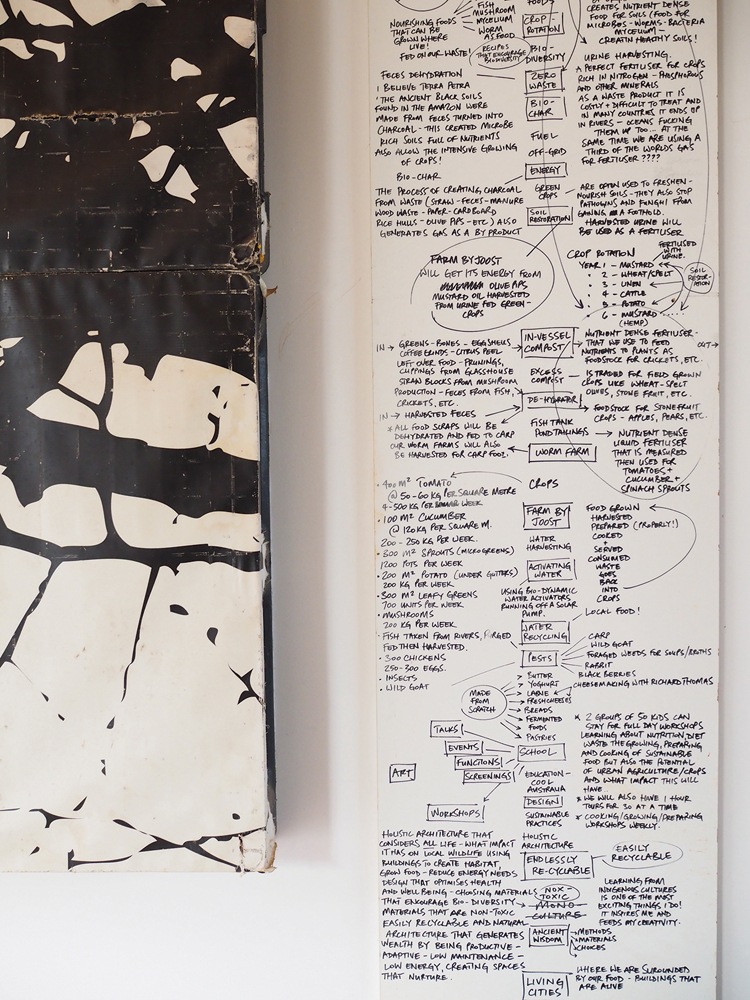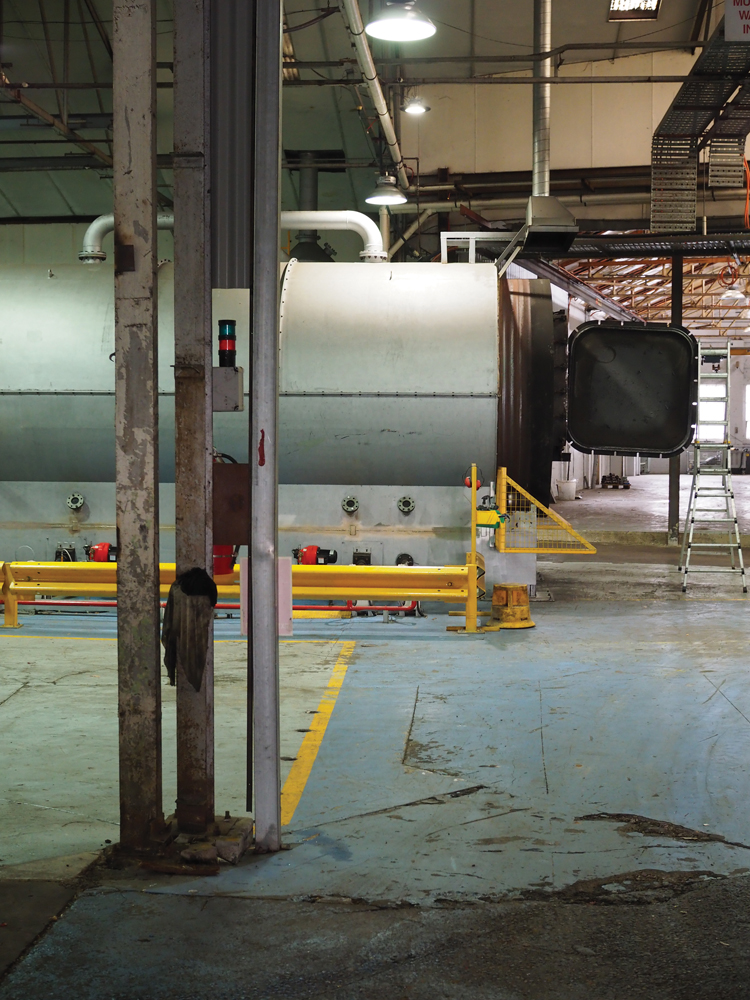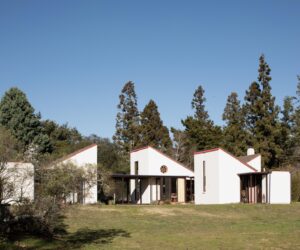Renaissance Man
Environmental activist and florist Joost Bakker’s mission to eliminate waste continues to lead him to exciting new frontiers.
There is an air of excitement about Joost Bakker. You can feel it even before being in his presence: arriving at his Monbulk, Victoria family home and farm (which he designed and built) one is met by a wall covered in living strawberry plants. This is where the intrigue begins.
The prominent environmental activist has turned his hand to many projects over the years, including hospitality ventures, consulting for various commercial projects and, in the works, a “true, living example of a zero waste system” – a closed-loop greenhouse inhabited by humans, which he envisages on a site in Melbourne. On top of that, he’s been working as a florist since the age of 19. Had you asked him what his ambitions were, growing up as a child in Holland, however, his answer would’ve been quite different. He fancied becoming an artist.
If it wasn’t already apparent, Joost gives new meaning to the term “crossdisciplinary” – but his work always revolves around preserving the earth. His philosophy quite literally starts from the ground up: with the soil. “The nutrients that we generate need to go back onto the soil,” he shares from his dining room table, above which are suspended light fittings fashioned from reclaimed beehive components.
Joost has become renowned for his radical, experimental approach to eliminating waste and his new project marks no exception. With the help of investors, he’s opened a pyrolysis plant in an old factory in Monbulk, with the aim to convert contaminated plastic waste into oil. “…We’re generating an unimaginable amount of waste that needs to be turned into something,” he explains.
In essence, the pyrolysis plant converts waste plastic into crude oil by using heat. The machine uses 100-200 litres of diesel for this process, but Joost shares the fact that they reuse the diesel from a previous batch.
The Monbulk factory is particularly unique because it burns at a lower temperature than average pyrolysis machines, thereby reducing its emissions. Joost elaborates: “Pyrolysis of waste plastic is traditionally done at 450º … which means that it uses a lot of energy to maintain that temperature. When you run at 450º, you get about a 75 per cent yield – so for every 10 tonnes of plastic you put in, you get 7500 litres of oil out.”
“[In] our process, we’re getting as high as 8500 litres of oil out because it’s at a lower temperature. We’re getting an 85 per cent yield.” Joost notes that while they’re losing 15 per cent of the energy, some of this percentage is also made up of carbon which is “highly valuable”.
At the time of writing, the Monbulk pyrolysis plant has only been used for R&D trials while Joost and his team work towards meeting Australian Standards. The results so far have been promising, though: Joost reports that the oil has been used to power a LandCruiser, no less.
Standing in the factory amidst towers of donated plastics, Australia’s waste crisis is writ large. Joost has plans to share this technology nationwide, stating: “We want to try and create a machine that’s around $5 million or less … that’s small enough to be able to go into recycling stations all over Australia.”
It can safely be said that Joost doesn’t lack ambition. When asked about his perspective on life, he remains open-minded. “I think I’m a realist … and an optimist,” Joost reflects. “But I think many people think I’m a nut job.” But then again, what innovator worth their salt doesn’t attract the odd raised eyebrow?

